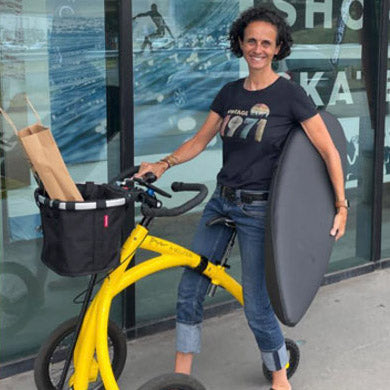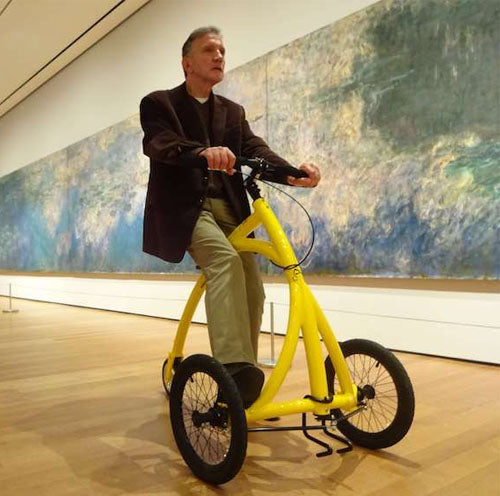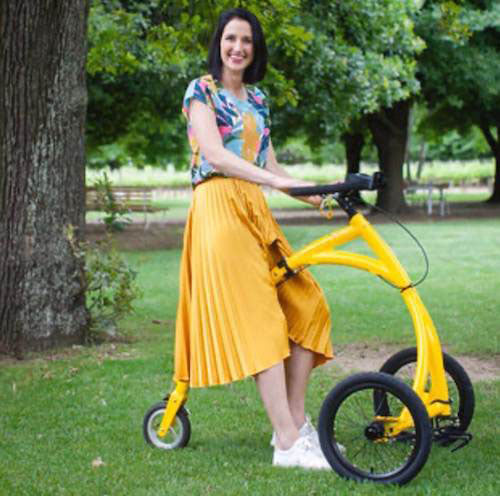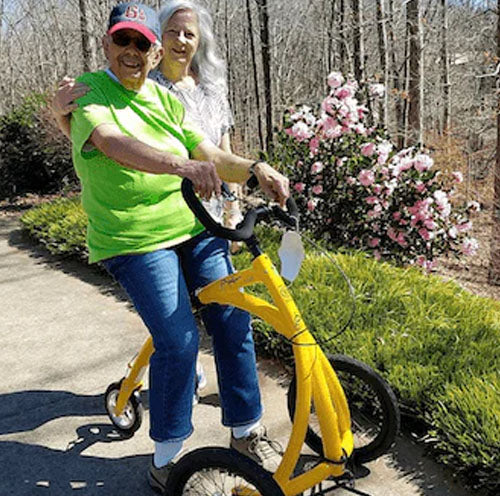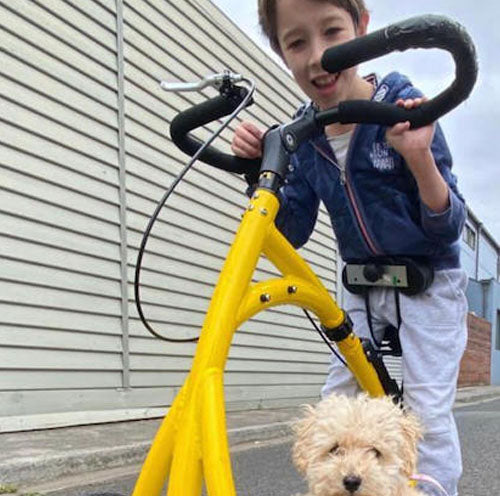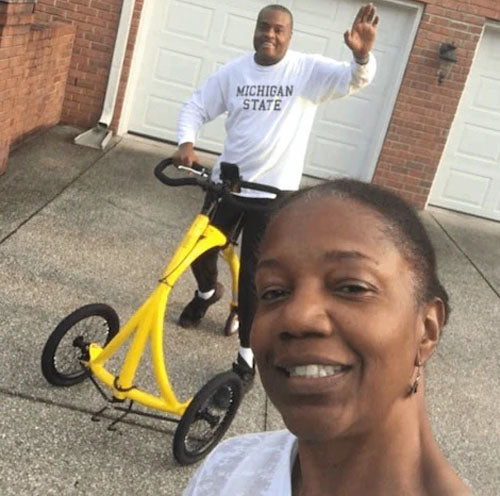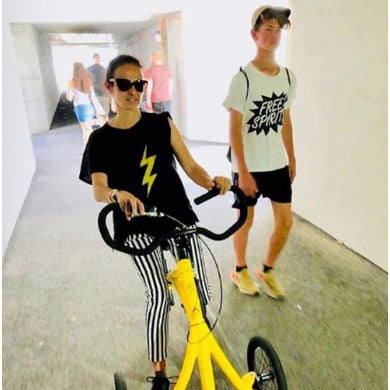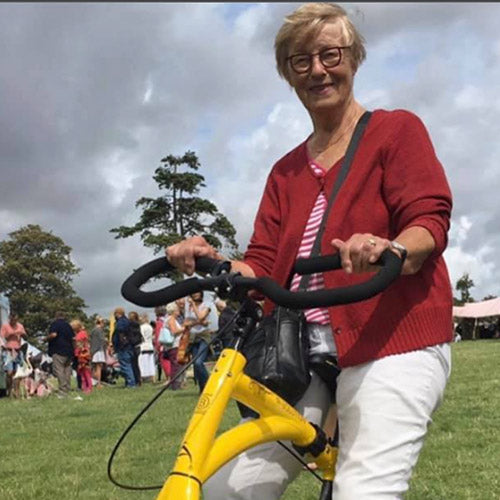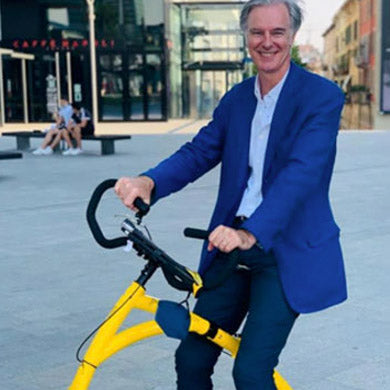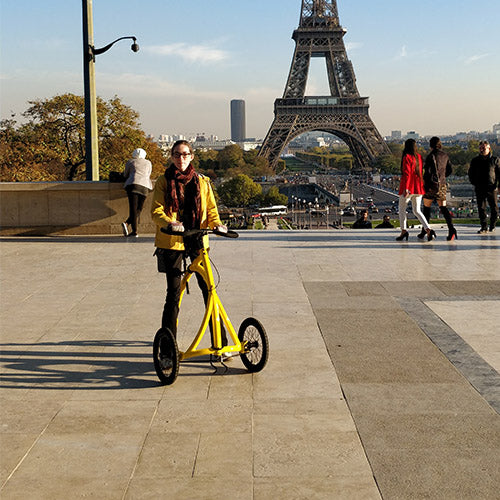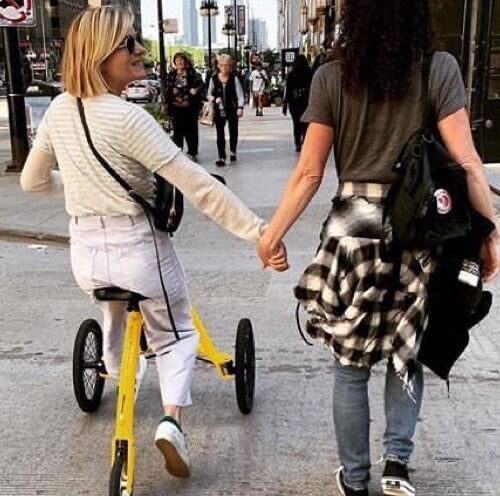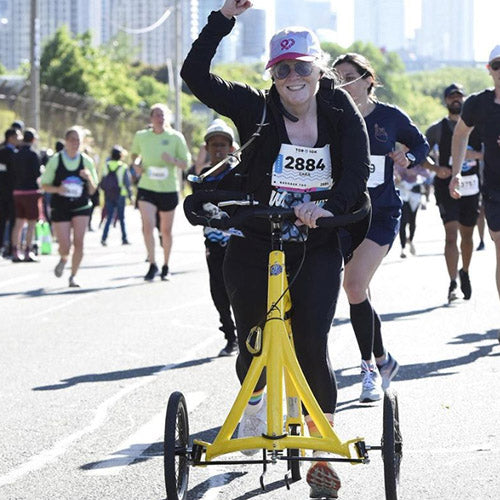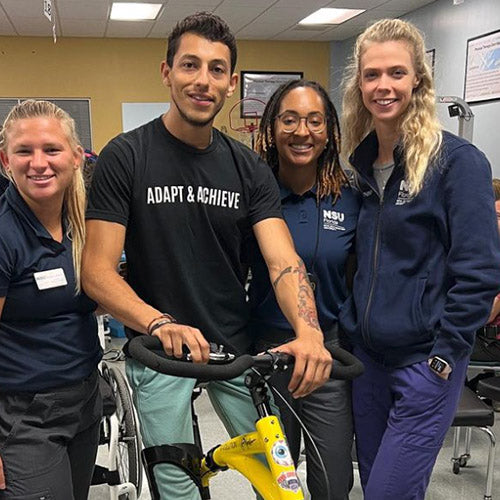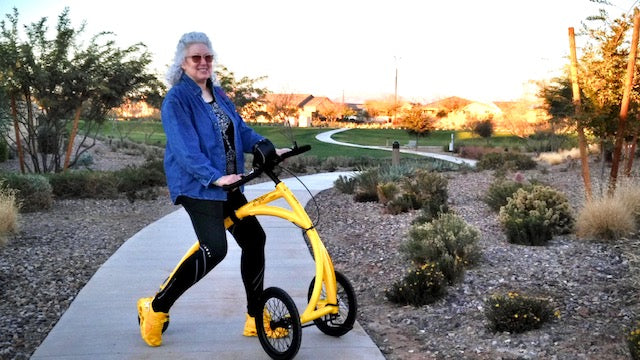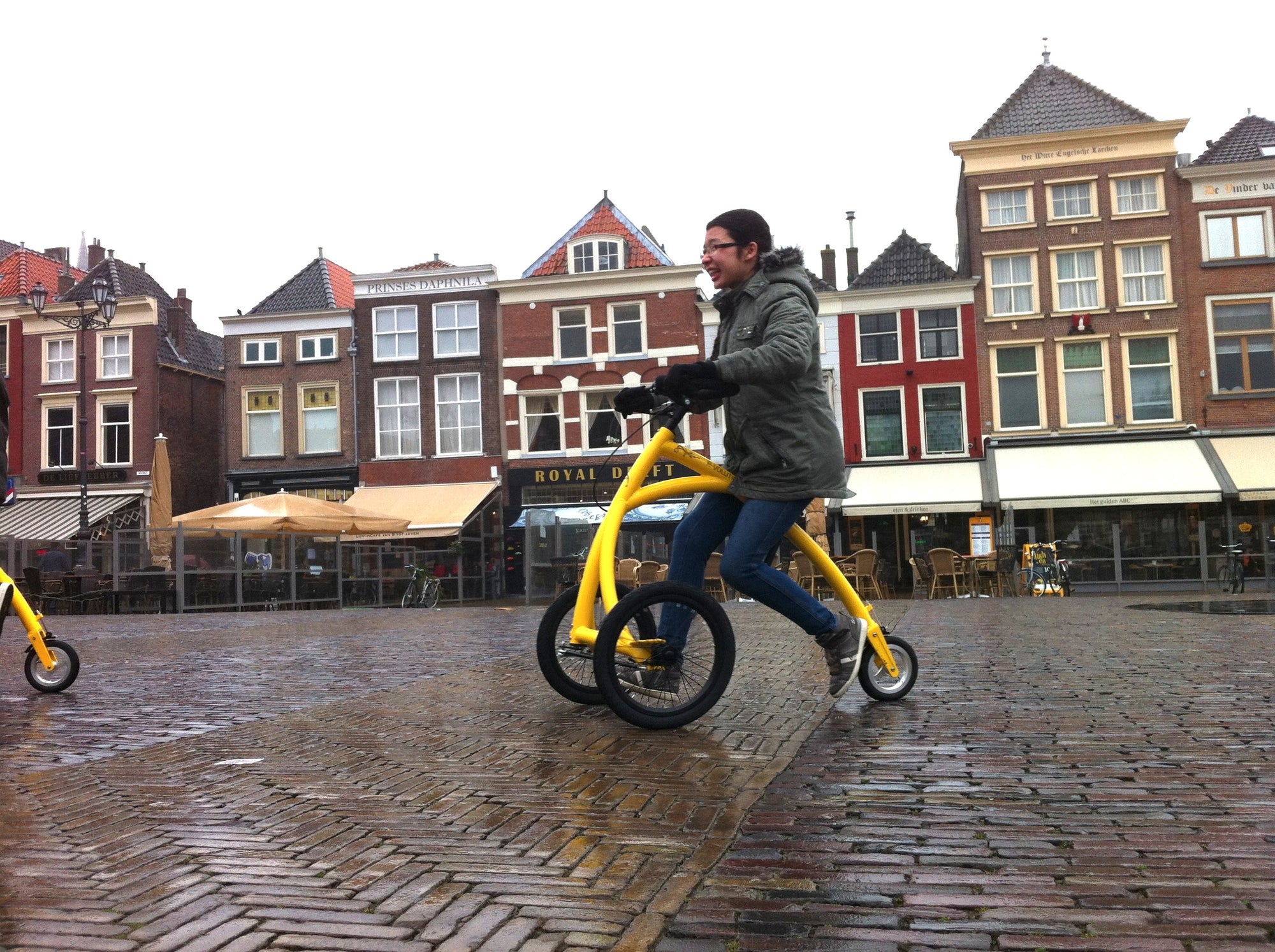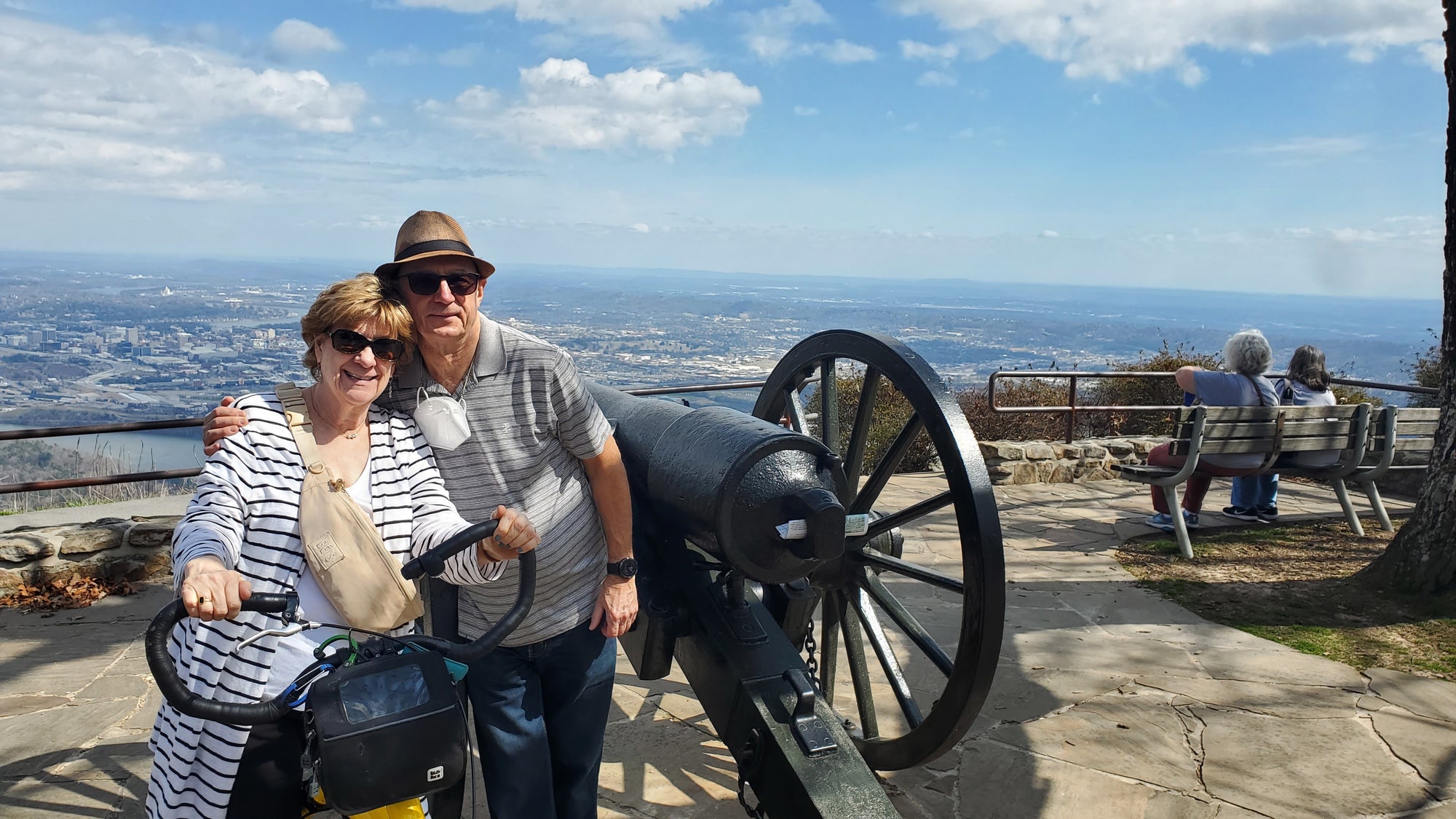How do we uphold an inaccessible world? This was the topic of an earlier community Zoom conversation we had with the Alinker family, and special guest Maayan Ziv from AccessNow. How do we, not just as able-bodied people, but also as people with disabilities or various identities outside the mainstream, contribute to inaccessibility. How does our internalized ableism continue to uphold the structures we are trying to fight, and how can we move past that?
BE, by way of example, discussed how internalized ableism can prevent you from responding the way you wish you could respond when confronted by criticism or meanness. “Every time I go as a gender weirdo to a toilet, I get called out or called names. And I can’t escape that,” BE said. “Every time I come home, and something happens like that, I don’t have the response yet to hold my own, and to not be affected. It affects me when somebody says ‘pervert.’ I don’t have my response, it impacts me, and then what happens is I beat myself up for not having responded in the right way. So it hurts me double.”
Not knowing how to respond when confronted inappropriately is a burden that is consistently-and unfairly-placed on people with disabilities. When your identity or ability falls outside of the mainstream, able-bodied people often ask inappropriate questions or force you into a conversation that is more personal than the context should permit.
Sergio, one of our customer service representatives and a regular wheelchair user, relayed a story in which he was helping his cousin work on her car, when he noticed a guy in a pickup truck slow down and start circling the lot where he was working on the car. The guy eventually parked and walked over and asked Sergio if everything was okay, as if to suggest that he wouldn’t be able to work on the car in a wheelchair. When Sergio responded that it was under control, the man then asked “What happened?” indicating towards his chair. By asking this, he was forcing Sergio into a position where he could either lie, or embark on a deeply personal conversation with a total stranger. Ultimately, Sergio just pointed towards the car and said, “the battery died.” The man got the point and walked off.
These kinds of interactions with the general public put the onus on the person with the disability to maintain their composure when backed into a corner, an emotional burden that just isn’t realistic at all times.
“I would say that it’s like a practice,” said Maayan. “I want to say that in general I get better at it, but it really depends on the day. If I’m having a really hard day and there’s a lot going on, my patience is limited in terms of how much capacity I have to hold myself and stop and remind myself, that person might just not know, or that person hasn’t had an opportunity to be educated…I try to navigate the intention, and if I feel safe, I might answer.”
Ziv and a few others discussed being asked about their mobility aids by young children, who are coming from a place of innocence, but are then corrected by their parents who have been socialized to not discuss disability. “What I find interesting about those instances is that parents are often grabbing their kid and saying ‘No don’t ask, don’t look, don’t talk to them,’” said Maayan. “And that’s the moment where this little kid, who’s just forming their ideas about the world, is now told that disability is awkward and uncomfortable, and is told ‘We don’t even talk to them, we don’t ask those questions.’”
But when you simply respond to a kid, say something like “this is my wheelchair” or “this is what my forearm crutches are for,” and so on, kids basically just say “okay,” and shrug it off, and in its in these moments that the parents, too, realize these conversations are not as terrifying as they’d thought. It’s having these conversations without the buffer of children, though, where the challenge can be, because the curiosity that adults have about disabilities does not come from the place of innocence, but rather fear.
“People are uncomfortable around disabilities, because they feel like, ‘Oh that can happen to me too, and then who am I,’” said BE. “In the divisive way that we’ve made the separation of the disabled here and the not-disabled there, it has become a scary place. So how can we show up to make it less scary. Because we’re all disabled, just not yet.”
Maayan echoed that sentiment. “Unlike a lot of different kinds of identities that people may carry, first of all disability is universal and anyone can join the community, or the population rather, at any time,” she said. “But more so I think that disability, whether you’d like it or not, presents a form of vulnerability that other people recognize. And vulnerability is an interesting thing because it does allow for honesty. It allows people to shed layers, and bring people closer in, and that’s how you build authentic relationships with people.”
The wife of one of our community members, Richard, who has MS, says his mobility aids have not been a burden in public, so much as they’ve created opportunities for conversations with strangers that they may not have had otherwise. “We’ve just noticed that people are curious, and if you’re open to it, if you open the door for them to feel comfortable to ask those questions and not feel like they’re being inappropriate…it is a good opportunity to make them realize, he can have a conversation and interact.”
While it’s important to have these conversations, it’s also a burden placed on people with disabilities to constantly be in the position of being an advocate. “Sometimes there is a moment where we can recognize that we have a role whether we want that role or not,” said Ziv. “Because we have an opportunity to educate. We don’t have to choose it, every time, but we have a choice, when we feel it’s right, to educate, to advocate, to help people realize that it’s okay.”
In order to build the world we want, and stop upholding the structures of inaccessibility, we need to stop viewing vulnerability as a weakness, and instead view it as a strength.
“Vulnerability is in fact the way that we connect,” said BE. “I dream of a world where dismissed people are the leaders of tomorrow. Because people that are dismissed are confronted by life, they actually know a little more about life.”

